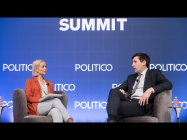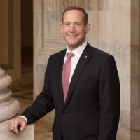


“In the matter of reforming things, as distinct from deforming them, there is one plain and simple principle; a principle which will probably be called a paradox. There exists in such a case a certain institution or law; let us say, for the sake of simplicity, a fence or gate erected across a road. The more modern type of reformer goes gaily up to it and says, "I don't see the use of this; let us clear it away." To which the more intelligent type of reformer will do well to answer: "If you don't see the use of it, I certainly won't let you clear it away. Go away and think. Then, when you can come back and tell me that you do see the use of it, I may allow you to destroy it." -- GK Chesterton
Chesterton’s Fence has a certain popularity amongst those who wish oppose various socially progressive ideas, and there is a misconception that those who wish to destroy this or that are doing so without considering the nature of what they wish to tear down. That if the progressive adhered to Chesterton’s Fence that there could be a more productive conversation between the reformer and his opponents. This is a grave mistake. It may be a hard thing to accept, but the revolutionary often has a better understanding of the nature and purpose of the institutions he wishes to dismantle than those who oppose him.
Take for instance the widespread acceptance among certain Christian communities of LGBTQ ideology or Feminism. Acceptance of both of these ideologies by Christians require the dismantling fences that have stood for thousands of years. Their opponents might naively bemoan that these progressives should have considered why things were the way they were; that an appeal the “niceness” of modernity was no basis for such sweeping changes; that they should have considered Chesterton’s Fence. The thing is these people know the purpose of the fences in question and are lying about their reason for wanting to tear them down. In fact, they are lying about even wanting to tear them down; they claim that after removing everything but the posts that the fences has been improved. They are lying.
To understand why they do this, you need to know what they know: what is the fence for, and why they would want it gone. It would also help to know why they are lying.
When the Immigration and Nationality Act of 1965 was signed into law, its proponents made two claims. The first was that the old quota system unjustly restricted immigration because it expressly aimed to maintain the character of the American people, that is to say a Nation predominantly comprised of White Christians. Their second claim that the law would not have a significant impact on the culture or demographics of the American people. Obviously, they were talking out of both sides of their mouths. You see, Emanuel Cellar knew the purpose of US immigration law prior to 1965, but he didn’t go around saying that the predominantly White and Christian nature of the United States must be destroyed: he claimed that the principles that protected such a system were unjust, then he claimed that the major changes he proposed would have no effect. He was not ignorant of the nature of the thing he wanted to destroy; he ignored its nature and appealed to the better nature of the American people for permission to destroy it. In short, he was lying.
Chesterton’s Fence presumes that the reformer is not actively engaged in subterfuge, but this is not typically the case. The revolutionary knows why the fence is there but demands of its defender “why do you care; how does this even effect you?” when he begins to tear it down. They don’t want you to know what the fence is for, and they certainly don’t want you to know that they know what the fence is for. They are lying.
Why would Philip Hart, Emanual Cellar, and Lyndon Johnson lie? Because it would have been a pretty hard sell, even to the rank-and-file liberal of last century, to say “we should pass a law aimed at reducing the White proportion of the population,” but that’s what they were aiming for. It was, however, surprisingly easy to convince Americans left-right-and-center that they ought to be nicer to foreigners of all creeds and colors, never mind that the framers of the Hart-Caller act were expressly aiming to tear down the fence that maintained the ethnic and religious nature of the American Nation. It was an appeal to be allowed to use American principles to destroy the Americans that upheld those same principles. They were again, of course, lying.
When barbarians arrive at the gate saying, “we are not a conquering enemy; we are but poor refugees,” do not believe them. When the progressive says, ‘we do not want to destroy the American family; we are only teaching your children empathy for the other,” do not believe them. When the pastor says, “we do not wish to change the Christian Religion; we are simply teaching our flock to be more tolerant,” do not believe them. Assume they are lying.
It was not part of their blood,
It came to them very late
With long arrears to make good,
When the English began to hate.
They were not easily moved,
They were icy-willing to wait
Till every count should be proved,
Ere the English began to hate.
Their voices were even and low,
Their eyes were level and straight.
There was neither sign nor show,
When the English began to hate.
It was not preached to the crowd,
It was not taught by the State.
No man spoke it aloud,
When the English began to hate.
It was not suddenly bred,
It will not swiftly abate,
Through the chill years ahead,
When Time shall count from the date
That the English began to hate.

For some time I've been struggling with my alignment with strong free market economists of the 50s-90s like Milton Friedman or Thomas Sowell and the obvious downsides of "deindustrialization." I don't want to nail Friedman on a single talk , but his statement that "you don't want to be sending out more than you take in" seems completely at odds with being economically productive. That's the basis of economic productivity: a farmer sends out far more than he gets in return, but he lives off a margin of what he creates.
But starting in the 80s we started exporting industries themselves. Friedman would argue that exporting our textile industry merely freed up our country to produce more valuable products, so it was a win. Then went our heavy industries and from almost the beginning we paid to create our semiconductor ICs and related things in SE Asia (ultimately China). Ok that's fine? We're being freed up for more valuable industries, right? Except that's not the case; we're now a "services economy."
As far as I can tell a "services economy" produces nothing but add generation platforms. Every fucking "tech" idea for the past 15 years is about extracting value from the shrinking bits of the productive economy (with much funny money to keep things going)?
So I have two opposing questions for the economics nerds. 1) Are guys like Friedman and Sowell right about global trade, ie bring me back to the team Milton Friedman. 2) If I wanted to start a communist revolution and seize the means of production, is there anything left to seize?
Smith's "What are you reading?" posts always result in at least a few good books added to my list. I'd like to do an audiobook version. I'm a pretty voracious reader, but I loathe the idea that recordings "don't count." For most of literary history books were so damned expensive that often even most literate people listened to readings as often they had access to a book (the chapterhouses of religious institutions, for example). So here are a few of my favorite books and their narrators.
-
Patrick O'Brien's Aubrey/Maturin series narrated by Patrick Tull. O'Brien's work is fantastic, and I believe Tull's narration captures the spirit of the works, especially the constant humor that even many fans fail to mention while praising the series.
-
The Fagles translation of The Iliad as narrated by Dereck Jacobi. There not much to say here: Homer is Homer, and Jacobi narrates the ancient epic with the skill you would expect. Ian McKellen narrated Fagles' translation of The Odyssey, but I have not gotten to it yet; I presume its probably equally good.
-
This last pick is going catch flack, but The Dresden Files as narrated by James Marsters. Dresden Files is schlock but I think its entertaining schlock, and Marsters does a good job narrating the schlocky first person novels. Fight me.



In light of the English behaving like racists and demanding that foreigners not murder their children, its time to revisit language.
Bonus article about the Irish being replaced and a JQ in one
A country is a bit of land. A nation is a group of people. And a State is the body that governs a nation that lives in a country. These words are not synonyms! Democracy is rule of the people, ie the nation. Without nationalism, democracy is, by definition, a form of tyranny. If the nation (that is to say the people) is not in charge, then they are slaves to the state. If foreigners are given equal preference to nationals then the State is merely a tyrannical body the runs the country (a bit of land) as an economic block. The worst tyrants of the middle ages and the ancient period dindn't even try this.














